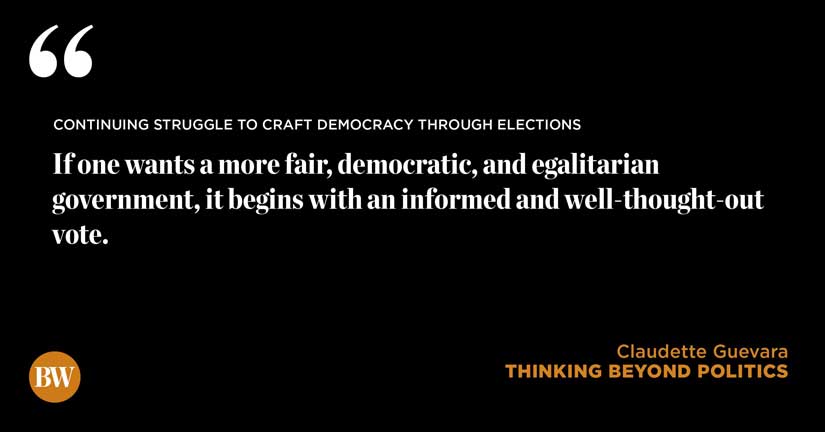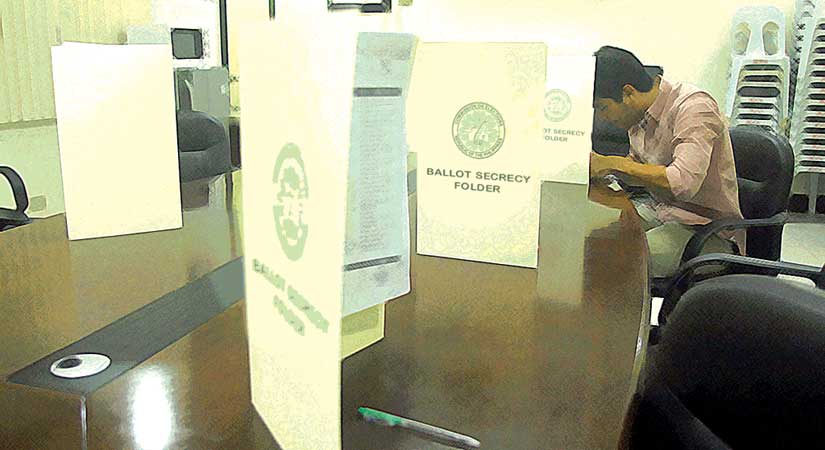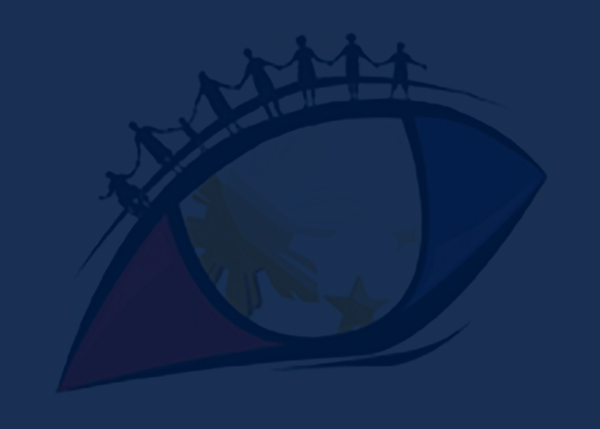By Claudette Guevara

We have a deeply rooted, overwhelming governance problem. What surveys show as the citizen’s waxing and waning support for the national leadership has a continuously dark undertone — the people have a generalized distrust of government. This is unsurprising as most of those in power are not merely ineffective, they are dysfunctional. They are not merely incompetent as rule enforcers, they are distorting the rules.
The Philippines continues to be plagued by the irresponsible and corrupt exercise of political power. The net effect: the business sector’s lukewarm attitude toward sustained investment, a civil society undermined and lacking a clear development agenda, and public institutions with poor track record in service delivery.
It doesn’t take one a long time to find an example of corruption in the Philippines. Whether they involve a complicated web of people and organizations or individuals benefitting from certain projects, the list of corruption cases is endless.
These issues extend into or are highlighted by elections. As if the high cost of running for a position wasn’t enough as a barrier, candidates have to accept the possibility that they, their family, and their supporters could be victims of political violence. Therefore, to secure their safety and investments, candidates rely on vote-buying and other forms of patronage politics, which they must maintain throughout their tenure for continued success; and so, the cycle continues.
All corrupt governance practices are ultimately rooted in our electoral system. Corruption in preparation for and during elections including vote-buying, misuse of public funds, electoral violence, to name a few, all reproduce other forms of malpractices in the socio-political sphere. Electoral corruption is the moldering mother of all other forms of corruption in government.
However, the worst development of all is the apathy of people toward corruption. The normalcy of corruption cases allows politicians associated with corruption to run again, with relative high chances of winning.
While this is enough to send anyone into despair about the future of this country, one of the great attributes of democracy is its ability to correct itself. Despite the lack of a solid critical alternative during elections, we may look at May 2019 as another point in the continuing struggle to craft democracy in this country.

Imagine how the seeds of corruption are sown during elections. To make the social soil infertile to such malignant growth, we must advocate program-based and policy-intensive political discourse to test the leadership potential of the candidates. When corruption seems to seep from every branch of the government, elections act as another check-and-balance against officials to hold them accountable for their performance. Through their ballot, citizens state their support for certain practices, beliefs, and stances.
If one wants a more fair, democratic, and egalitarian government, it begins with an informed and well-thought-out vote. For any concerned citizen, voting is not a singular action done every three years. Instead, it is an active reflection of the problems and needs of the country in comparison to the abilities, programs, and principles of hopeful candidates. In the era of the internet, information is merely a click away and ignorance is no longer an excuse. The power of the ballot is strong which is why it is often the target of manipulation by those who wish to stay in power.
Democracy Watch believes in the ability of the government to change and the people’s power to ensure that such change is for the better. We envision a mature and reformed Philippine Republic that delivers effective and responsive governance with an inclusive economic prosperity and a truly democratic political system. This dream begins with us citizens.
Earlier this month, we launched our Youth Alliance with student governments and leaders of universities and colleges in Metro Manila to promote voter education and discussion among young leaders. Unable to imagine a Philippines without democracy, it is easy to take it for granted. Yet the youth are the ones with the most to gain or lose with a long life ahead of them. In this light, we want to engage them by learning about and voicing out their concerns through these forums. We believe that their active participation leads to better decisions and outcomes, from which a thorough consultation of their ideas and points of view will create more effective public policies and positive outcomes for years to come.
The youth are not the only ones with the responsibility to be active citizens. A real democracy needs pro-active citizens. Citizens who take the elections seriously and the task of selecting leaders with the mind of one who is deeply reflecting on a better future for society.
Let us seize this opportunity to hold our officials accountable and elect the right leaders for the future of this country. Let us make these elections count.
Claudette Guevara is Deputy Executive Director for Programs of Stratbase ADR Institute and Secretary-General of Democracy Watch Philippines.
Source: Business World

